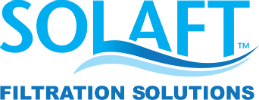In March, SOLAFT was contracted to perform a filter bag change-out for NRGs scheduled June shutdown in Queensland, Australia. At the time when the contract was awarded, restrictions on work activities were introduced by government officials and site Occupational Health & Safety officers to minimise the potential risk of spreading the disease.
Rather than delaying the change-out, which would have also put the coal-fired power plant at operational and financial risk, SOLAFT proposed providing a Covid-19 Safe Team to work with site officers as a risk mitigation strategy, allowing the Unit 2 filter bag change-out to proceed.
To support the NRG’s mandatory requirement of temperature testing all individuals prior to site entry, SOLAFT proposed a number of additional methods to mitigate disease spread.
Prior to commencing the bag change work, SOLAFT requested a dedicated isolated room for respirator face-fitting to all crew members. Each team member was fitted with a fully sealed mask and all equipment was sanitised during the procedure. A large theatre room was provided for the induction process to enable the work crew to maintain a minimum social distance of 2m.
Initial inspection of the Crib Room facilities revealed that the social distancing requirements could not be met without adding additional space, so two 6m x 4m demountable crib rooms were hired in addition to the existing facilities. The crew was then broken into smaller groups to allow social distances to be maintained.
In order to maintain strict cleanliness of crib spaces and equipment, SOLAFT proposed to provide a full time cleaning crew of four that would be responsible for sanitising of the crib spaces and all personal protective equipment (PPE), following each work period.
NRG deemed the measures put in place sufficient with the risks and ordered the project to proceed as already contracted and with the proposed measures in place.
NRG Project Coordinator Dave Griffith said: “Putting these measures into place reduced the risk of the disease spreading to an acceptable level, and following a risk assessment, allowed NRG to continue successfully with its planned maintenance outage.”

